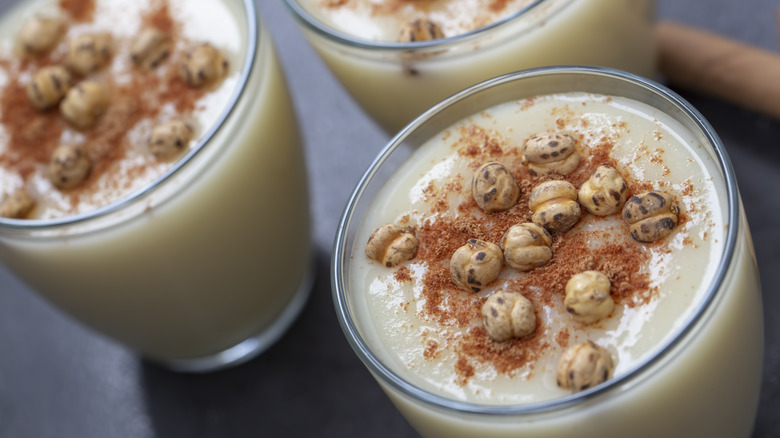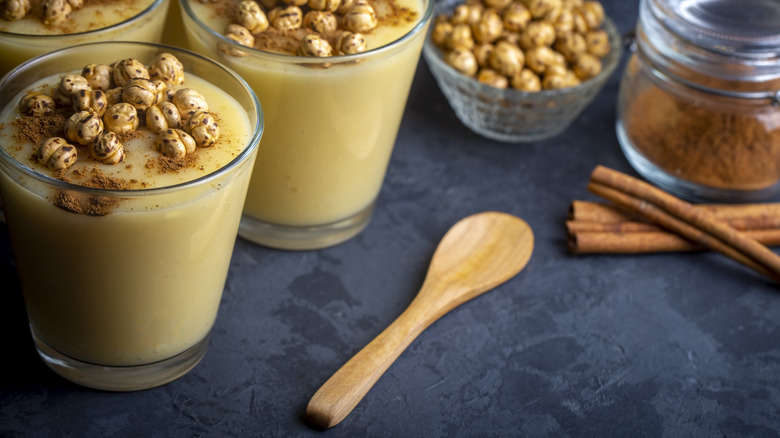Boza Is The Fermented Drink That's Been Enjoyed For Over 8,000 Years
When it comes to recipes that have been around for several millennia, look no further than to thick glasses of boza for proof that some things never go out of style. Originally from Mesopotamia, the drink was brought to the Balkan Peninsula by Turkish migrants. Historians suspect the drink's name is a derivative of "buksum," the word for a sour millet-based beverage found in an old Turkish dialect. Yet with all old recipes, legends and stories abound, and the exact origins of the tangy refreshment are shrouded in mystery.
Despite being banned in the 17th century for having trace amounts of alcohol, boza has remained a persistent part of Turkish culture. The making of it continued, and boza houses became popular among commoners and the elite alike. Topped with sprinkles of cinnamon and roasted chickpeas by small shops and street vendors, the pudding-like beverage is one of those fermented drinks you should know that totes health benefits. The tangy drink is thought to strengthen and warm bodies, is often prescribed to lactating mothers, and is even recommended to those suffering from cholera and throat infections. The most common recipe found throughout the region today was largely influenced by Albanian Hacı Sadık Bey who tweaked the brown, sour drink to a lighter-hued beverage with a lesser wallop of tang. Bey opened his own trading house for the stuff in 1876; to this day the operation continues to produce batches of boza.
A drink fit for sheikhs
Though boza may require a refined palate to enjoy, it can be served with slices of cake as an afternoon treat and is often presented with a spoon so drinkers — or slurpers — can choose whether to dip into cups with a utensil or guzzle it directly from a glass. In Turkey, boza is particularly enjoyed during colder months, with traditional sellers shouting and singing "boza" on Istanbul's streets before pouring cups out of handheld pitchers. Boza can also be found in supermarkets for those with urgent cravings.
If you're hoping to try this drink without boarding a plane, you'll need to plan well in advance as the recipe calls for a full day of preparation and fermentation. To make boza, bulgur and rice are boiled and strained, then left to sit for several hours before spoonfuls of sugar and yeast are added to the mixture. This combination of ingredients is left for at least 20 hours and sporadically stirred until more sugar is added and the drink is ready. Boza can also be made from a range of popular grains, including millet, corn, or barley, and sheikhs are reported to have enjoyed their boza recipes made with jasmine, molasses, cloves, ginger, and coconut. Sheikh or not, with a little patience you, too, can sample a taste of history.

